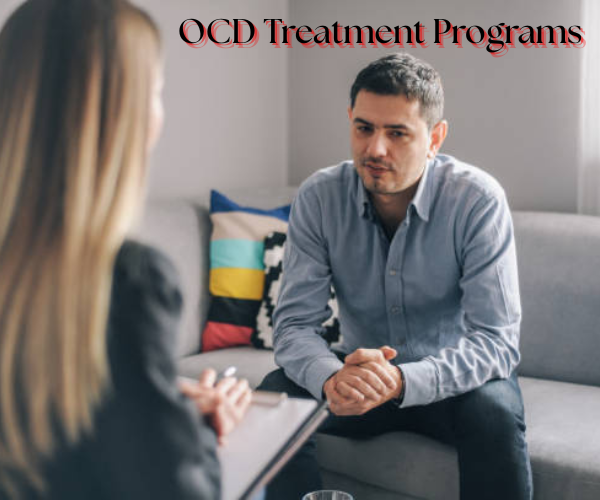Living with OCD can feel very hard. Your mind gets stuck, and you may do the same things again and again. But there is hope. With the right care, life can get much better. This guide will show you simple and clear steps about OCD treatment programs.
What Is OCD?
OCD means obsessive-compulsive disorder. People with OCD have strong, unwanted thoughts. These are called obsessions. To calm these thoughts, they do actions again and again. These are called compulsions.
For example, someone may wash their hands many times, or check the stove over and over. OCD is not just being neat. It is a health condition that needs real care.
Why Get Treatment?
Without help, OCD often gets worse. It can take up hours of the day. It can make school, work, and family life very hard.
Getting treatment helps you take back your life. It gives you skills to fight OCD thoughts and actions. Recovery is possible when you get the right help.
What Are OCD Treatment Programs?
OCD treatment programs are plans made by mental health experts. These plans help people manage OCD in a safe way.
A program may include talking therapy, medicine, or group support. Each program is built for the person’s needs. The goal is always the same: to make life easier and happier.
Types of Programs
Outpatient Programs Here, you live at home but visit a clinic for help. This is good for people with mild to moderate OCD.
Intensive Outpatient (IOP) This program has more hours each week. You may go three to four days. It gives more support than normal outpatient care.
Partial Hospital Program (PHP) In PHP, you spend the day at a center but go home at night. This works well if you need strong help but also want family time.
Residential Treatment This is full-time care. You live at the center. It is best for people with severe OCD who need 24/7 support.
Therapies That Help
Cognitive Behavioral Therapy (CBT) CBT helps you see how your thoughts affect your actions. A key part of CBT is ERP (exposure and response prevention). ERP lets you face fears slowly and stop compulsions. Over time, OCD gets weaker.
Medicine Doctors may give medicine, like SSRIs. These help balance brain chemicals. Medicine works best when used with therapy.
Group Therapy Being with others who have OCD helps you feel less alone. You can share tips and support each other.
Family Therapy Family learns how to give the right kind of help. This makes home life easier for everyone.
How to Pick the Right Program
The right program depends on how strong the OCD is. For small issues, outpatient therapy may work. For harder cases, PHP or residential care may be better.
Always talk to a mental health expert before choosing. A good program is safe, caring, and made for you.
Daily Habits That Help Recovery
Treatment is the main step. But small daily habits can also make recovery faster.
- Relax: Try deep breathing or short meditation.
- Move your body: Walking or light exercise lifts your mood.
- Keep routine: Having a plan for the day makes life easier.
- Talk to others: Friends and family bring support.
These habits are simple, but they add up.
What Recovery Looks Like
Recovery does not mean OCD is gone forever. It means OCD no longer rules your life. With practice, people learn to handle thoughts without fear.
Some people feel better quickly. Others need more time. Both are okay. What matters is steady progress.
When to Ask for Help
If OCD takes too much time each day, if it blocks work or school, or if it hurts relationships, it’s time to ask for help.
Many OCD Treatment Programs are ready to guide people. Starting may feel scary, but it is the first step toward freedom.
Final Thoughts
OCD can feel heavy, but treatment makes it lighter. Outpatient, IOP, PHP, or residential care—each has tools to bring relief. Recovery is a journey, but it is a journey you can take.
If you are looking for support and resources, visit zenithmhc.com. You are not alone, and help is always within reach.
 :
https://www.pinterest.com/zenithmhc/
:
https://www.pinterest.com/zenithmhc/

